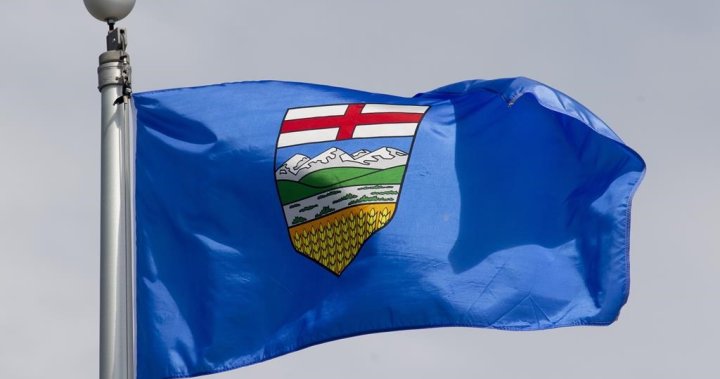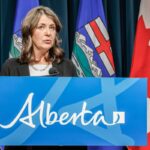In a pivotal moment for Alberta’s LGBTQ2+ community, a provincial judge granted an injunction yesterday against the UCP government’s controversial gender-affirming care restrictions. The ruling temporarily halts several aspects of Bill 7 that would have limited treatments for transgender youth under 16.
Walking through downtown Calgary this morning, the conversation was impossible to miss. From coffee shops to the C-Train, opinions flowed freely. This latest development adds another chapter to what’s become one of Alberta’s most contentious political battles in recent memory.
The temporary injunction specifically targets provisions that would have banned hormone therapy and puberty blockers for youth under 16, restrictions that medical groups across the province have vocally opposed since Premier Danielle Smith first announced the measures earlier this year.
“This injunction recognizes the potential harm these restrictions could cause to vulnerable young Albertans,” said Dr. Margaret Fullerton, a Calgary pediatrician I’ve interviewed previously on healthcare policy. “Medical decisions should remain between patients, families, and their healthcare providers—not politicians.”
The legal challenge was mounted by several families with transgender children alongside the Canadian Civil Liberties Association. Their argument centered on the potential irreparable harm to transgender youth if treatment were suddenly withdrawn or denied.
Justice Grant Dunlop’s ruling noted the plaintiffs demonstrated a “serious issue to be tried” and that the “balance of convenience” favored granting the injunction while the full constitutional challenge proceeds through the courts.
For Calgary parent Rebecca Martinez, whose name I’ve changed to protect her family’s privacy, the ruling represents temporary relief. “My child finally started feeling like themselves after beginning treatment,” she told me during a conversation at a local community center. “The thought of having that taken away was terrifying for our whole family.”
The province’s UCP government has consistently framed Bill 7 as protection for children too young to make permanent medical decisions. Premier Smith has repeatedly cited concerns about youth being “rushed” into treatments, despite medical protocols that involve extensive assessment and counseling before any medical interventions begin.
Data from Alberta Health Services shows approximately 900 youth are currently receiving some form of gender-affirming care in the province. Medical experts have consistently emphasized that these treatments follow established clinical guidelines and are considered standard care by major medical associations.
The injunction doesn’t impact other aspects of the government’s gender policy framework, including requirements for parental consent before students under 16 can change their names or pronouns at school.
Dr. James Makokis, a prominent Indigenous two-spirit physician who provides transgender healthcare in Alberta, expressed cautious optimism. “This injunction acknowledges the medical consensus that gender-affirming care is necessary and beneficial,” he said. “But we’re still facing a long legal battle ahead.”
The Alberta Medical Association had previously warned that limiting access to gender-affirming care contradicts evidence-based medicine and could lead to increased mental health crises among transgender youth. Studies consistently show that access to appropriate gender-affirming care significantly reduces depression, anxiety, and suicidal ideation in transgender individuals.
For Calgary’s LGBTQ2+ community, the court’s decision represents a temporary reprieve. “We can breathe slightly easier today,” said Kelly Fraser, coordinator at a local youth support group. “But the uncertainty has already caused immense stress for families.”
The province has seven days to decide whether to appeal the injunction. Justice Minister Mickey Amery indicated the government is reviewing the decision before determining next steps.
As this story continues to unfold, it highlights the complex intersection of medical ethics, parental rights, and government authority that’s playing out in communities across Alberta. The full constitutional challenge is expected to be heard later this year.
Meanwhile, for families like the Martinez’s, the focus remains on supporting their children through uncertain times. “We just want what every parent wants,” Rebecca told me. “For our child to be healthy, happy and able to access the medical care they need.”







